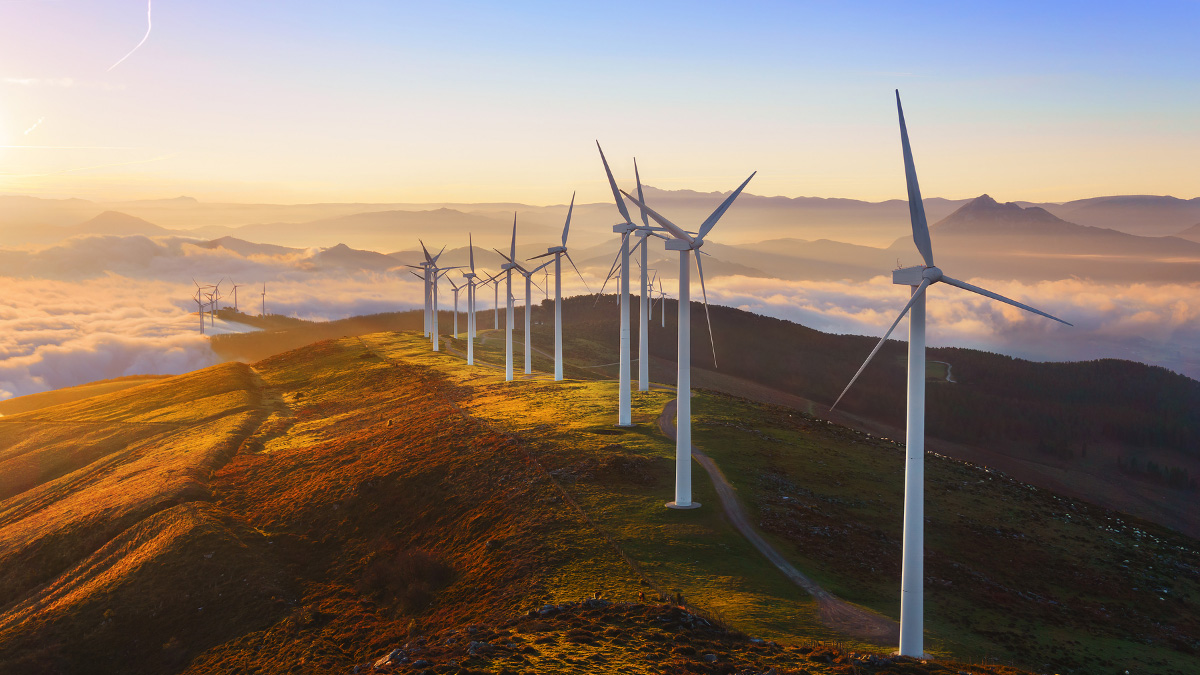 This is the final part of a series of educational posts from the IFoA’s Climate Change Disclosures Working Party about climate reporting topics. Here we explore the impact that energy security considerations have had on the types of assets as green investments and the consequences this may have on reporting and progress towards net zero.
This is the final part of a series of educational posts from the IFoA’s Climate Change Disclosures Working Party about climate reporting topics. Here we explore the impact that energy security considerations have had on the types of assets as green investments and the consequences this may have on reporting and progress towards net zero.
European countries are transitioning away from the use of fossil fuels, but classic green energy sources such as solar, wind, and tidal power are currently not in a position to provide a high or stable enough capacity to meet demand. The Russia-Ukraine conflict has highlighted the consequences of weaknesses in the resilience of the energy industry, with disruption to energy supplies leading to volatile electricity prices.
This has restarted the debate about how to protect energy security while continuing to transition away from the use of fossil fuels. Some countries have even temporarily increased their use of coal.
As a way to support a secure energy transition, the EU decided to include certain natural gas and nuclear activities in the list of environmentally sustainable economic activities covered by the updated EU Taxonomy in January 2023.
Similarly, the UK is due to consult on its own green taxonomy (a framework that clarifies what can be classified as environmentally sustainable investments) in autumn 2023. In the 2023 Green Finance Strategy, the UK government proposes that investments in nuclear power will be classed as sustainable.
These decisions are controversial because while energy security is certainly important, it is open to question how sustainable either fuel is. Natural gas is a fossil fuel and generates carbon emissions when burnt (albeit lower than other types of fossil fuels). Nuclear waste leads to lasting damage to the environment with difficulties in safe storage and waste disposal.
In addition, the Russia-Ukraine conflict has shown a dependence on Russian natural gas, bringing into question whether natural gas can be considered a secure fuel.
Financial institutions may be able to report that a higher proportion of their existing investments in the energy sector are green investments. This would make their progress towards net zero in reporting look more positive, but possibly overstate true progress towards transitioning to a sustainable economy.
The purpose of climate reporting is for stakeholders to be able to accurately assess the climate risk that companies are exposed to. If progress is overstated in reporting, then this will make a correct assessment of risk difficult and could lead to misallocation of capital in the financial markets. Potential divergence between countries about what counts as green investment could also cause confusion and make it harder to draw comparisons between companies.
A particular concern is that this move will reduce the incentive for investment in emerging types of cleaner energy provision. While it is widely agreed that the world needs to retain a secure source of energy during the transition to net zero (which will partly come from fossil fuels), investment is still required to find a solution to energy needs that is both environmentally friendly and more secure. There are many technologies being investigated, including hydrogen-based fuels and more efficient batteries, but these all require additional research and further capital investment.
Saying this, both the UK and EU continue to think about how to encourage capital investment. For example, the EU announced further recommendations in June 2023 on facilitating finance for the transition to a sustainable economy. But guidelines on the energy sector remain mixed.
The regulatory environment needs to ensure that protecting energy security now does not come at a cost of under-investment in the new technologies we need for a net zero future.
The EU taxonomy is a classification system, first published in 2020, that defines EU-wide criteria for economic activities that are aligned with a net zero trajectory by 2050 and broader environmental goals. See: EU taxonomy for sustainable activities
What are your thoughts on the points raised in this article? What do you think about the inclusion of gas and nuclear as ‘green’ investments?
We would love to hear your views in the comments on the IFoA's Sustainability Finance Community LinkedIn page.
To find out more, visit: Sustainability: research working parties
The views expressed in this post are those of the individual authors, and not necessarily those of the Institute and Faculty of Actuaries or those of their employers. Information within this post is correct as at the date of writing (i.e. end of July 2023). Hence, there may be subsequent updates which are not reflected. Any reader should still reference the underlying legislation and standard, and should there be any conflict, the underlying information in the relevant standard or legislation supersedes any information presented in this post.